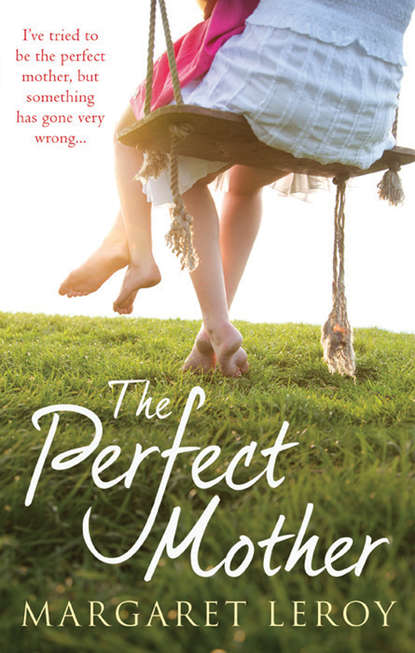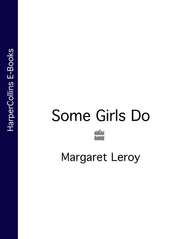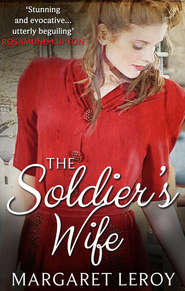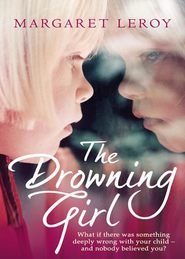По всем вопросам обращайтесь на: info@litportal.ru
(©) 2003-2024.
✖
The Perfect Mother
Автор
Год написания книги
2018
Настройки чтения
Размер шрифта
Высота строк
Поля
I suddenly remember he has an important meeting tomorrow. I feel ashamed.
‘I shouldn’t have woken you. I’m sorry.’
‘It’s a bit late for that,’ he says. The words are slurred, thick with sleep.
‘I’ve been worrying about Daisy. I was going through everything she’d eaten for the last few days.’
‘She’s fine,’ he says. ‘She’ll be better soon.’
He inches in closer, moves his hand on my breast. I’m cold, and my nipple is taut against his palm.
‘Richard, she’s hardly eating anything.’
‘Kids can last for ages without much food as long as they’re drinking,’ he says.
‘I’m worried she’s going to starve.’
‘Darling, don’t let’s go getting all melodramatic,’ he says. There’s an edge of exasperation in his voice. ‘If you’re worried, you’ll just have to take her back to the doctor.’
‘He wasn’t any use before,’ I say.
I took her to the GP last week—two weeks into term, and she’d scarcely been to school. He looked at Daisy’s ears and tonsils, said everything was fine and she probably had post-viral fatigue and she could go to school but she shouldn’t run around. I said, ‘She’s feeling sick,’ and he said nausea isn’t anything to worry about, nausea doesn’t mean there’s anything wrong. I said she wasn’t eating. ‘She’ll eat again in her own good time,’ he said. ‘Children are tougher than we think, Mrs Lydgate.’
‘But what can he do?’ I say to Richard. ‘She hasn’t got an infection or sore throat or anything. She doesn’t need antibiotics.’
‘You don’t know that,’ he says.
‘And if it’s a post-viral thing, you just have to wait for it to get better, don’t you?’
‘Well, at least it might put your mind at rest,’ he says.
‘I don’t know.’
‘Honestly,’ he says, ‘what on earth is the point of lying here worrying if you refuse to do anything about it?’
‘But I know he’ll just say, “Come back in a fortnight.”’
‘Maybe you should ask for her to be referred,’ he says.
‘To the hospital?’ This surprises me.
‘Well, if you’re worried. You could ask to see a specialist.’
‘But I can’t just ask the GP to do that.’
‘Of course you can. For God’s sake, isn’t that what we pay our taxes for? It’s like you never feel you have a right to anything,’ he says, quite affectionately.
I can feel him hard against my thigh; I move my hand down, encircle him. I feel I owe him this, now I’ve woken him. He’s pushing up my nightdress.
‘Take this thing off,’ he says.
I pull it over my head. I turn the bedside light on; Richard likes to look. He runs his hand down me, eases his finger inside me.
‘You’re not very wet,’ he says.
‘Lick your hand. I’ll be fine. I’m just a bit tired, that’s all.’
He moves his wet finger on me.
I’m dragging a net through my mind, trawling for sex, conjuring up images that are more and more extreme, bits of Anaïs Nin, scenes from Secretary, things I’ve read, things I’ve done, but I can’t hold onto them. Like fish in a wide-meshed net they flicker and fade and dive away into darkness. Instead of sex, I’m thinking about this morning, when we’d run out of our usual mineral water, we only had Vittel, not Evian, and Daisy said she couldn’t drink it because it tasted like milk. I left her in the house on her own, with strict instructions not to answer the door, drove to the nearest Waitrose through heavy traffic, and bought the kind of Evian she likes best, with a sports cap. It took me forty-five minutes.
I gave her the bottle of water. She took a sip, frowned, pushed the bottle away.
‘Sorry, Mum,’ she said.
I knelt beside her.
‘Daisy, you’ve got to drink something. You’ve got to drink halfway down this bottle by lunchtime or I shall call the doctor.’
I put a mark on the bottle. Slowly, through the morning, she drank her way down to the mark.
Richard’s cock in my hand is hard and full and his breathing is heavy; and he needs to sleep and he’s got that meeting today. I’m not being fair to him, making him wait like this. I lift his hand away from me.
‘I don’t think I can come tonight,’ I say. ‘Don’t worry.’
I roll over on top of him.
‘Well, if you’re sure,’ he says.
I kneel astride him and he slides into me. He reaches up lazily to touch my breasts. I don’t quite like this. Since the months of breastfeeding Daisy, I sometimes don’t like to have my breasts touched; the feeling seems to move from irritating to intense with nothing in between, as though there’s some short-circuit in me. I don’t let this show.
He moves rapidly, comes with a sigh.
I slide off him, turn over, with him tucked into my back. He sinks rapidly into sleep, his breath warm on my shoulder; I haven’t even turned off the light.
I lie there for a while, but sleep feels far from me. The light of the lamp falls on the bedroom walls, which are ragrolled and opulently red; the hatstand and the hat with a plume that I bought in a junk shop cast extravagant shadows. I had a fantasy in mind when I planned and painted this room, as though it were an opera set, perhaps for La Traviata, which Richard once took me to see. We have a French cherrywood bed with a scrolled head and feet, the floor is darkly varnished, the red of the walls is rich by lamplight, though rather oppressive by day; and there are heavy curtains patterned with arum lilies, and a poster from an exhibition of designs for the Ballet Russe, that we went to see when Sinead was doing a ballet project. The poster shows a kind of erotic dance, and when I bought it, just glancing at it quickly and knowing I liked it, I thought there were two figures there, entwined in some sexual ritual; though when I got it home and took it out to frame it I saw it was really a solitary figure, neither male nor female, at once muscled and voluptuous, bejewelled and draped in lavish folds of cloth—and the other shape was a scarf red as flame that twisted and curved close, gauzy, without substance, yet moving like the body of a lover.
I get up silently, and take Richard’s dressing gown from the foot of the bed and wrap it round me. Mine is silk, and in this weather putting it on just makes you feel colder.
I go down to the kitchen. I make some toast, but the butter is hard and won’t spread. There’s some wine left in the bottle we drank with dinner: Richard is keeping to his resolution to drink less whisky in the evening. I pour myself a glass; in the cold, it has no scent, but I feel a sudden easing as it glides into my veins.
The room is untidy, the girls’ things scattered around—Sinead’s flower scrunchies and copies of Heat, and drawings Daisy has done, sketches of injured animals, and her box of magnetic fridge poetry. She hasn’t done a new poem for weeks; her pre-Christmas offering is still on the door of the fridge. ‘The gold witch crept to the top.’ In the stillness and cold, untidy but with nobody there, the kitchen has the look of a room abandoned in a hurry, by people who’ve been warned of some disaster or called away. When I see myself in the mirror over the fireplace I realise I haven’t washed my hair for a week.
There’s a holiday brochure that came in the post, showing villas in Tuscany. I sip the wine and flick through, seeking to lose myself in these fields of sunflowers and cities of blond towers, but worry has its claws in me, it can’t be pushed away. With a sudden resolve I take a piece of paper that’s lying there and a purple felt-tip of Daisy’s. I write ‘To Do for Daisy’ at the top of the page, then ‘1. Go to GP. 2. Make a food diary—allergies? 3. Clear out her room—take away all rugs, cuddlies etc. Dust mites? 4. Homeopathy/herbalism—ask Nicky.’ Nicky got to know lots of alternative people during her transient passion for aromatherapy; tomorrow I shall ring her. I stick the list up on the fridge, next to Daisy’s poem. I am in control again: there’s so much I can do. I tell myself that Richard was right, that I have been over-emotional, that it will soon be over, and Daisy will be well. I picture myself chatting about it with Nicky at the Café Rouge over some nice Pinot Grigio. Honestly, I was sure that Daisy had something serious—but look at her now… I gulp down the rest of the wine and feel the fear edge away from me.
On the way back to bed I look in on Daisy. She’s sleeping quietly now, the duvet pulled up high and lifting with her breathing. Her room feels warmer than the rest of the house; above her there’s a glimmer of stencilled stars. Nothing can harm her here.
I go back to our bedroom and slip in beside Richard, and lie awake and hear the bark of the fox, moving rapidly across the long line of gardens, careless of hedges and fences, as though this whole wide territory were his.









